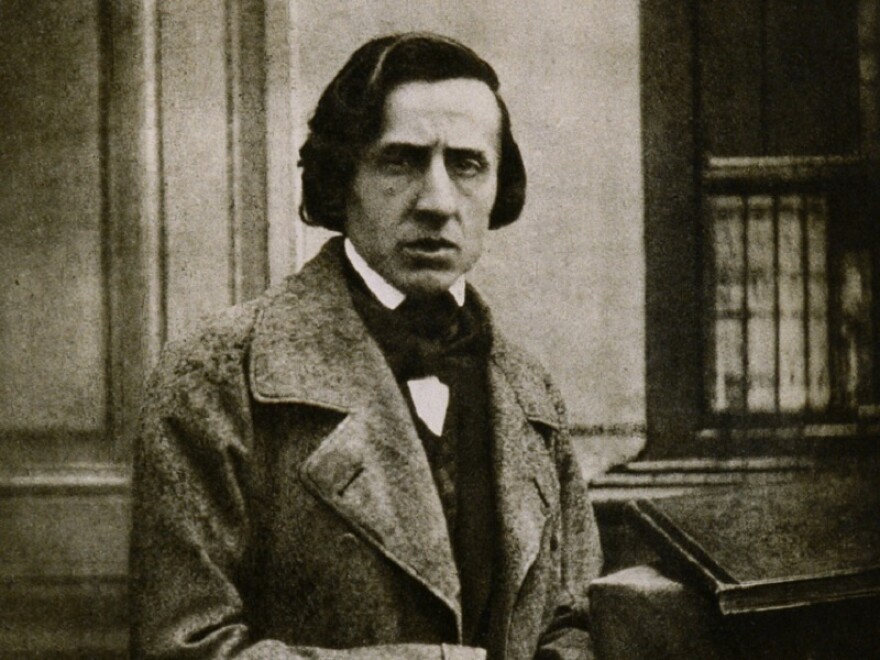In the Romantic Era, composers were no longer employees of the aristocracy; they composed for the people. This freedom was doubled-edged. Although it allowed the artistic genius of Berlioz, Liszt and Wagner to flourish, it also spawned a generation of composers who happily wrote crowd pleasing, disposable works for commercial success. Composers like Frederic Chopin rejected this “popularization” of music altogether by retreating from public performance and refusing to compromise his emerging artistic style. Ironically, Chopin’s music became (and has remained) extremely popular.
Chopin’s father immigrated to Poland from France and had a profound patriotism for his adopted country which he imparted to his children. Even though Chopin spent the majority of his career in Paris, he never forgot his Polish roots.
Chopin was another child prodigy. At the age of 6, it became clear that he was destined to be Mozart’s successor. The piano was Chopin’s greatest love; he wrote almost exclusively for that instrument. It’s believed that Chopin was mostly self-taught on the keyboard which accounts for his breaking of traditions and his inventive techniques. As a young man he became known as the national composer of Poland, but Chopin desired wider acclaim and musical experience. This led him to Vienna and to Paris.
“Hats off, gentlemen, a genius!” That was Robert Schumann’s famous response to Chopin as he quickly flashed onto the Parisian musical scene. Although his performances were legendary, he barely performed 30 times in public during his entire career. Chopin was convinced that sheer talent was not enough to compete with the “force of nature” that was Franz Liszt. Chopin became much more interested in composing, publishing his works and being one of the most sought after keyboard instructors in Paris.
Chopin was also a figure of controversy and rumor. There were reports of his ongoing battle with tuberculosis as early as 1836. His affair with novelist George Sand was the stuff of tabloids. After their relationship fell apart, Chopin’s health continued to decline. However he was forced to continue to make public appearances despite his sickness. He needed the money. The rise of the Second French Republic forced him to stop giving lessons and small performances were the only way he could support himself.
He finally succumbed to his illness on October 17, 1849. 3,000 mourners attended his funeral which was accompanied by an extravagant performance of Mozart’s “Requiem”.

Timeline is an exploration into the development of Western music. Take a journey into the events, characters and concepts that shaped our Western musical tradition.




